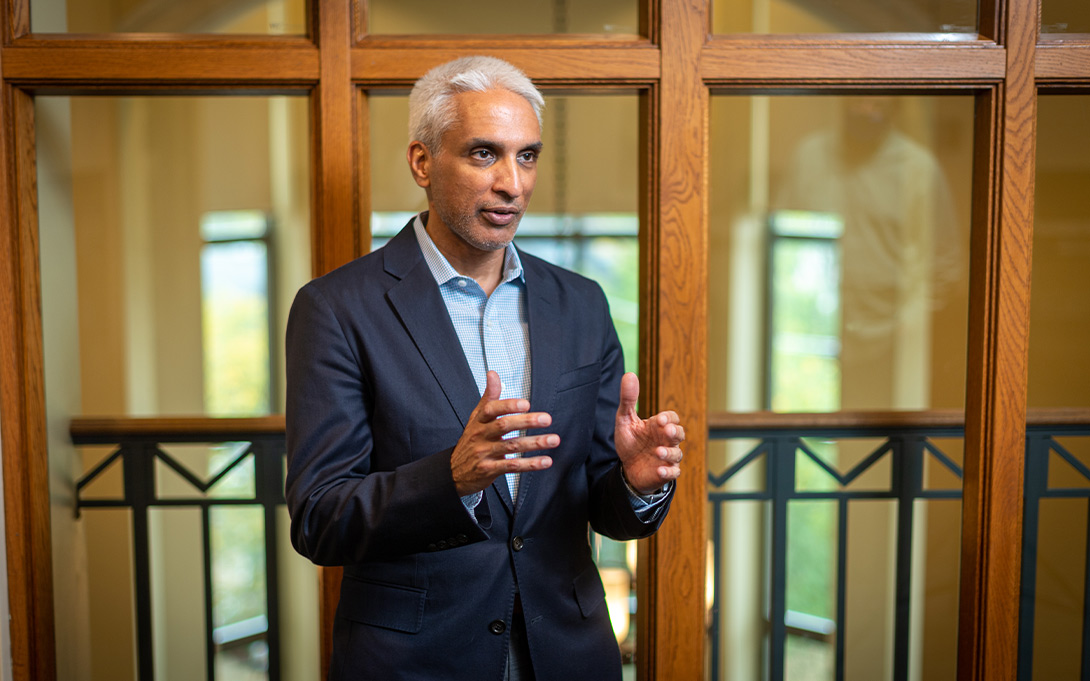
Republican attorneys general from 21 states are calling on President Joe Biden and Secretary of State Antony Blinken to declare Mexican drug cartels as Foreign Terrorist Organizations. They argue that the cartels pose a threat to U.S. national security beyond their drug-related activities.
The attorneys general emphasize that the designation of these groups as terrorist organizations would grant state and federal law enforcement agencies increased authority to freeze cartel assets, deny members entry to the United States, and allow prosecutors to press for tougher punishments against those supporting cartels.
Javed Ali, associate professor of practice at the Ford School, has held senior roles focused on counterterrorism within the U.S. government, including as a senior director on the National Security Council. He says that such a designation could have significant implications for U.S. national security and could help disrupt the operations of these cartels.
What’s your opinion on the proposal declaring the drug cartels as international terrorists?
The brutal murder of two U.S. citizens near Matamoros, Mexico, by what appears to be individuals associated with a drug cartel brings added momentum to the policy discussion on what new authorities and tools are necessary to apply pressure against these organizations to stem the flow of drugs and violence in Mexico.
Under Section 219 of the Immigration and Nationality Act, the State Department would have the lead—working in concert with the U.S. intelligence community—to prepare a designation of any Mexican cartel as a Foreign Terrorist Organization. Currently, there are over 30 such groups designated by the State Department, but none operate solely as drug cartels and pursue terrorist violence for ideological and political objectives.
Nevertheless, the use of terrorist tactics by Mexican cartels against Mexican citizens and foreign nationals—including U.S. citizens—may draw them closer to designation criteria under the State Department’s authorities, which would then allow the U.S. government to apply additional economic and financial sanctions, and also pursue material support to FTO charges that have been effective in the post-9/11 era against jihadist groups and other international terrorist threats. You could make a compelling case that the activity they are engaged in on both sides of the border seems to fit a definition of terrorism.
How will the designation be any different?
If you designate the Sinaloa cartel, for example, that opens a lot of legal tools for the U.S. to go after people either overseas or here inside the United States. The designation opens all these authorities for the U.S. to go after those groups both overseas and more importantly here in the United States. You could be charged with providing material support to a foreign terrorist organization here even if you never traveled overseas but have given $100 to a cartel.
What implications would such a declaration have on U.S. policy toward the drug cartel?
The potential downside to this particular course of action is a worsening of relations between Mexico and the United States, and an escalation in activity by any designated cartel. That said, the status quo approach currently does not seem to be altering the behavior of Mexican cartels, who operate with broad impunity in Mexico, terrorize local populations with their brutal tactics, and at times—like recent events show—show no regard for killing innocent Americans.
How does the international community view such a declaration and what challenges would the U.S. face in convincing other countries to recognize drug cartels as international terrorists?
Other countries will fall in line once the U.S. designates groups. Some countries will get behind, especially if it doesn’t really affect their interest. It’s more rhetorical and it just shows that you know there’s consensus at an international level on counterterrorism. If it starts to hit a little closer to home for some of these countries, then it gets a little more complicated and complex.
How effective would such a declaration be in combating drug cartels and what alternative approaches could be considered?
I think it all depends on who you talk to. We have been in this war on drugs for 40 years now since the Reagan era with some successes but some setbacks. Your plan is never going to go 100% according to how you’ve designed it and there’s always going to be unanticipated consequences. At this point, why wouldn’t you try something that you haven’t tried before to see if it works? It’s not going to be the only thing that we rely on but again it’s just another tool that we just haven’t used.
This Q&A was prepared by Juan Ochoa of Michigan News

